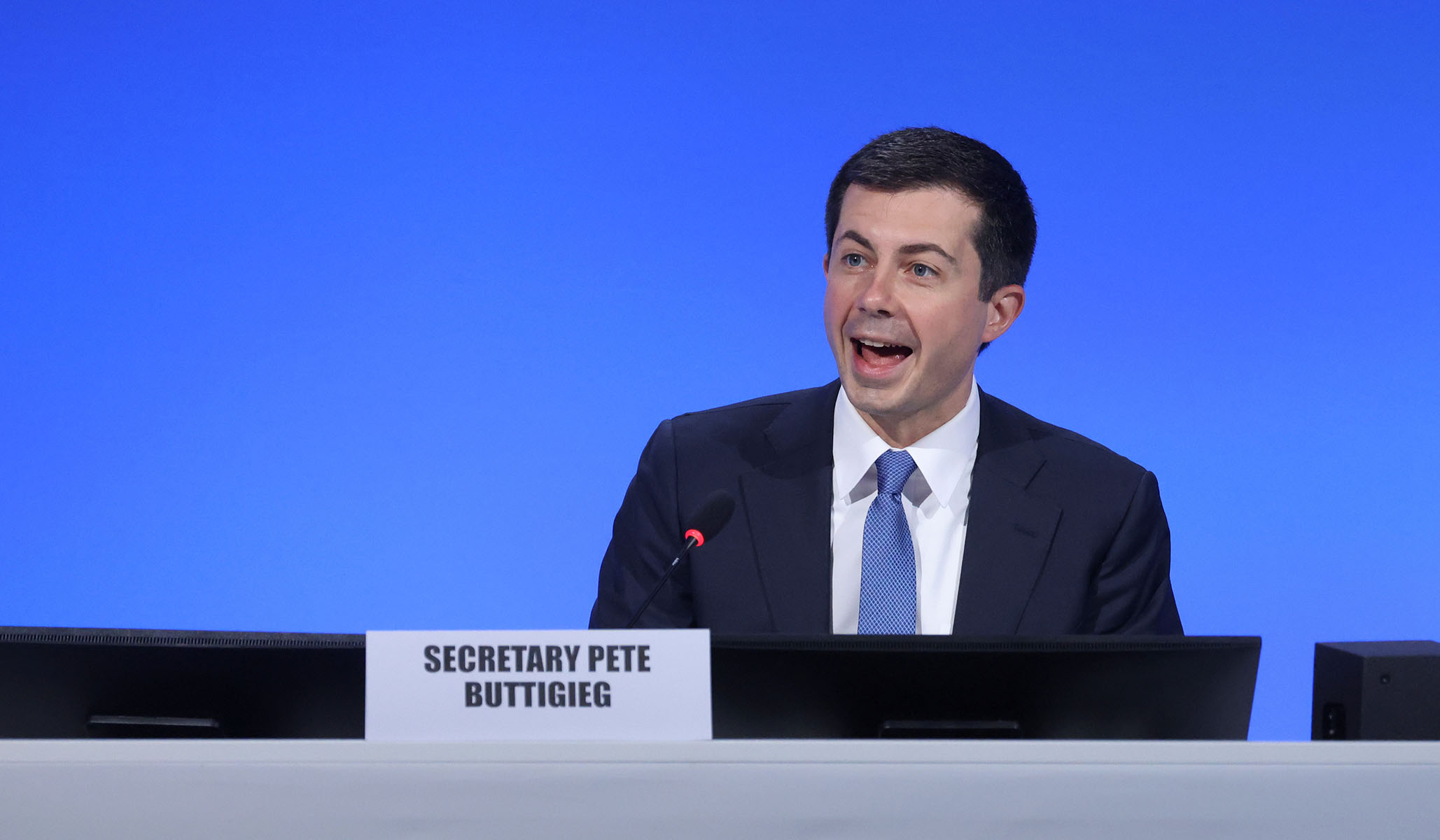


This morning, a few corners of the Right online world are chuckling about the new, ludicrously over-the-top gushing profile of Transportation Secretary Pete Buttigeig in Wired magazine. The interview begins with a declaration that “his cabinet job requires only a modest portion of his cognitive powers,” continues with a reference to “another apse in his cathedral mind” and
Wired is a good example of how Democrats – a category that often overlaps with, but does not completely include all progressives — have the cultural advantage of ready and cooperative access to a lot of publications that aren’t really about politics. These publications can be counted on to write gushing profiles and/or carry the message for whatever political figure or cause du jour, often in a manner that the New York Times, Washington Post, CNN, MSNBC or the cable news networks just wouldn’t. The big-name left-leaning mainstream media have their share of glaring flaws, but you just rarely see an over-the-top reference like “apse in his cathedral mind” in the Times, and somewhere around paragraph seventeen, you’ll usually find the “to be sure” paragraph, as in, “to be sure, Buttigieg has faced his share of unexpected headaches and setbacks during his tenure as Transportation Secretary, with critics contending…” etc. Most mainstream media reporting at least acknowledges the existence of the arguments from the right, even if it is only to dispute, counter, or poo-poo those arguments.
The starting assumption of this Buttigieg profile is that there is no legitimate criticism of the Transportation Secretary from the right, that it all stems from opposing “greater enfranchisement of undesirables, including, of course, women, poor people, Black people, and the usual demons in the sights of the world’s Ted Cruzes and Tucker Carlsons” and “the renunciation of democracy, modernity, civil rights, human rights.” The tone is about one step away from asking, “why are Republicans so evil?” Although I suppose if you’ve been itching to know what Buttigeig thinks of Tucker Carlson’s testicle-warming segment, this is the interview for you.
From this interview, we can determine Wired is extremely interested in Buttigieg’s faith, his thoughts on masculinity, and how the U.S. military “comes under attack from the far right.” The publication is strangely uninterested in supply chain problems, flight delays at America’s airports, outages in Federal Aviation Administration systems, the fact that it has never been more expensive to purchase a car, or how the commuting public is supposed to be moving to electric vehicles when electricity prices are lingering close to a two-decade high. For a magazine that is allegedly about emerging technology, the interview is strangely devoid of much talk about anything technological.
Instead, we get brilliant insights like, “Bud Light, Coke, football, Disney … and the Army. You can only put yourself on the wrong side of so many red, white, and blue American institutions, and the question becomes, Is this about you?”
Go ahead and call me a smug political journalist, but I see a lot of non-political publications write about politicians and political topics like a visiting tourist, when it seems the reporter and editor don’t know what they don’t know, they sure as heck aren’t all that interested in actual policy, and they have only the vaguest idea of how political figures are perceived outside of their offices. I still remember Vogue writing about New York senator Kirsten Gillibrand, then a potential presidential candidate, and describing her as an economic centrist, an iconoclast, and a campaigning powerhouse with cross-party appeal. The only problem was that Gillibrand was none of those things. When that alleged campaign-trail powerhouse jumped into the 2020 presidential race, Gillibrand flopped, was barely noticed on those crowded debate stages, and her primary legacy was as an obstruction to ranch dressing. We see similar phenomenon in the careers of Beto O’Rourke and Stacey Abrams. We keep reading profiles about Democratic Party figures who are supposedly the Next Big Thing, and then they turn out to be Not Much of a Thing At All.
A big chunk of the Democratic party’s political and cultural power stems from its ability to transmit its desired political arguments through not explicitly-political cultural venues.
